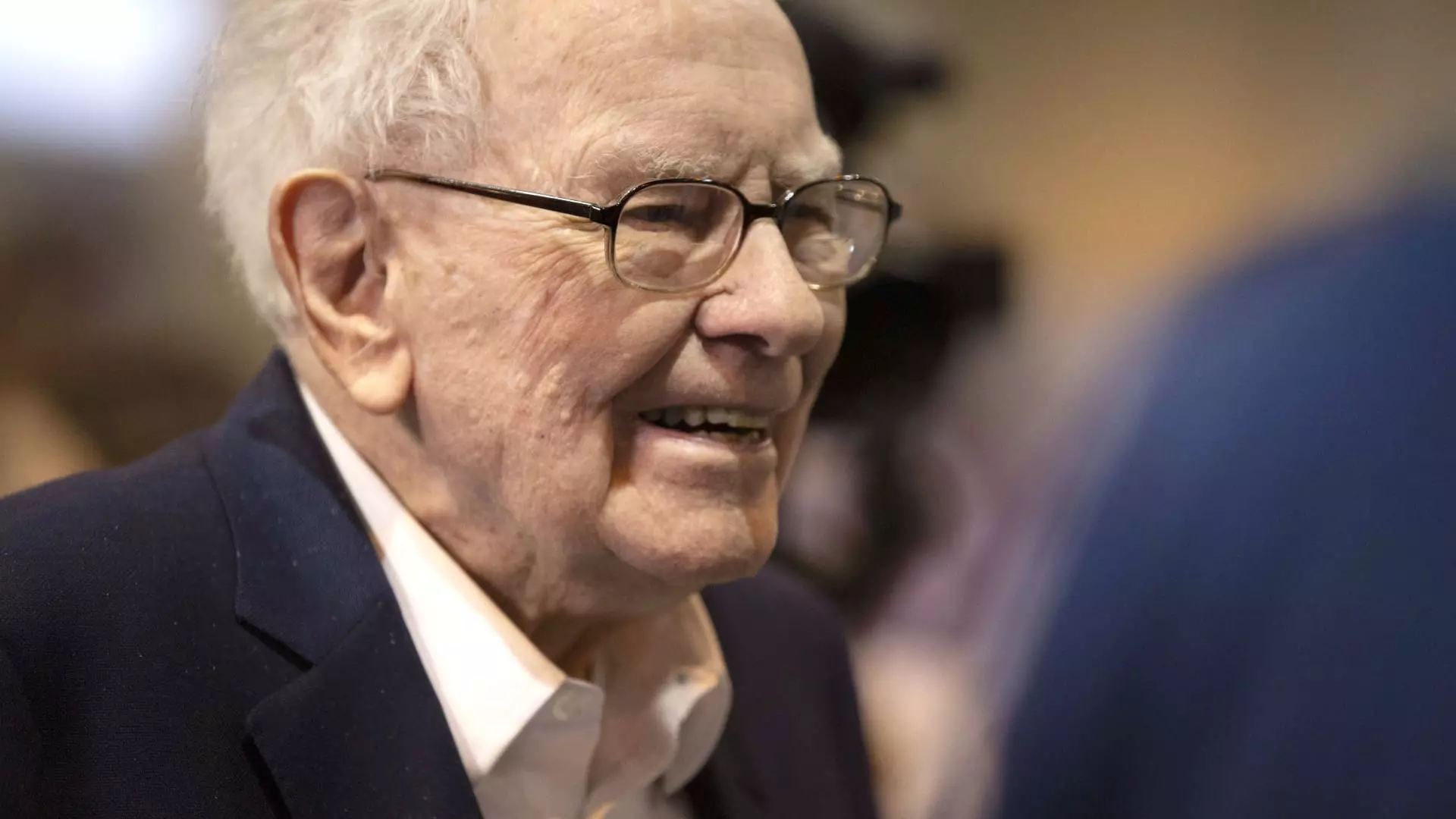Warren Buffett, the renowned figure in the world of investing, has often been the torchbearer of value investing principles. However, recent actions by the 94-year-old CEO of Berkshire Hathaway have raised eyebrows among investors and analysts alike. His defensive strategy, highlighted by a substantial increase in cash reserves and active stock sales, suggests a nuanced shift in approach that warrants a closer examination.
As of the latest quarter, Buffett has amassed an impressive cash pile of $334 billion, a figure that is both astonishing and puzzling. This accumulation may seem counterintuitive for a seasoned investor, particularly at a time when interest rates are anticipated to decline from their peaks. The crux of the matter lies in Buffett’s assertion that this cash reserve does not equate to a diminished appetite for equities. In his annual letter, he reassured shareholders, stating, “the great majority of your money remains in equities,” emphasizing that his long-standing commitment to stock investments remains unchanged.
This perspective speaks to Buffett’s intrinsic belief in the power of equities over cash-like assets. However, it also raises pertinent questions about his current market outlook. With equity markets witnessing significant gains, some may perceive his conservative stance as an anomaly or even a signal of macroeconomic concerns that could impede future growth.
The report of more than $134 billion in stock sales in 2024, coupled with the continuation of asset divestitures from Berkshire’s primary holdings, chiefly Apple and Bank of America, creates a narrative of retreat. Selling equities for nine consecutive quarters is unprecedented for Buffett and suggests a strategic reevaluation of his investment positions. Stockholders are left pondering: Is Buffett reacting to inflated valuations, or is he merely repositioning himself for future opportunities?
Moreover, the decision not to repurchase any Berkshire shares during times of rising operating earnings further compounds the mystery. Historically, buybacks have been employed as a tool to signal confidence in the underlying stock. Yet, Buffett’s current inaction may indicate a belief that share prices are overextended. As equities soar—with the S&P 500 posting remarkable gains over the last two years—Buffett’s caution could be indicative of broader market volatility.
Market Sentiment and Economic Factors
While Buffett’s insights carry weight, it is essential to contextualize his decisions within the larger economic landscape. The initial optimism following the election of Donald Trump has increasingly been marred by fears of a slowing economy and market turbulence triggered by swift legislative changes. In times of uncertainty, investors typically gravitate toward defensive maneuvers, which may explain Buffett’s current strategy.
Buffett’s mention of his neutrality regarding investment vehicles is particularly noteworthy. He has stated, “Often, nothing looks compelling,” hinting at a lack of appealing investment opportunities. This assertion aligns with a common concern among investors regarding high stock valuations. With so many factors influencing market dynamics, Buffett’s cautious stance can be interpreted as a prudent pause to assess conditions rather than an outright retreat from the market.
An integral aspect of Buffett’s current approach is his implicit preparation for the transition of leadership to Greg Abel, Berkshire’s vice-chairman of non-insurance operations. Buffett has likened Abel’s skills to those of the late Charlie Munger, suggesting a level of confidence in his successor’s capacity to navigate through uncertain waters. This move may not simply reflect a market response, but also a strategic intention to provide a more robust platform for future investment decisions under new management.
Buffett’s endorsement of Abel also illustrates a fundamental principle at play—the importance of succession planning in preserving investment philosophies and maintaining operational continuity. As Berkshire hathway gradually shifts leadership roles, how Abel chooses to deploy the considerable cash reserves may have lasting implications for the firm’s future.
Buffett’s recent actions can be perceived as uncharacteristically conservative for an investor of his caliber, leading to speculation that he anticipates a period of volatility ahead. While his cash position and stock sales can initially appear alarming, they may, in fact, serve as a calculated approach in a complex economic environment. It is a reminder of Buffett’s investment philosophy—capital preservation and strategic positioning often take precedence in uncertain times.
Warren Buffett’s defensive stance should not be construed as a departure from his investment ideology, but rather as a reflection of caution amid evolving market conditions. With a legacy of prudence behind him, shareholders can consider this moment not as a retreat but as a prelude to new opportunities waiting to be unlocked by thoughtful leadership and strategic foresight.

